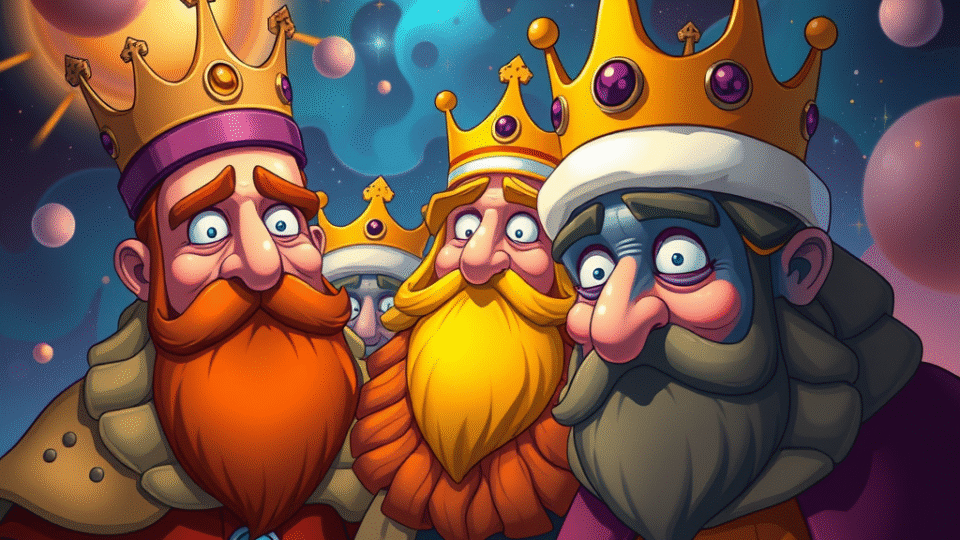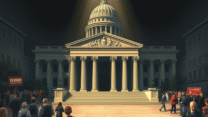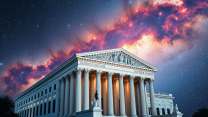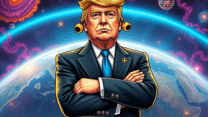
No Kings Day: Americans Remember They Fought a War Over This
No Kings Day is an Earth protest day that emerged in June 2025, when a significant portion of Americans suddenly recalled that their nation’s founding document specifically mentioned something about not having monarchs. This realization came approximately 249 years after they’d written it down, which is actually quite prompt by Earth standards.
The holiday was created in response to President Donald Trump’s military parade – an event that caused considerable confusion among historians who remembered that the last time Americans cheered for soldiers marching in formation past a single leader, they were watching old newsreels from countries America had specifically fought wars against.
The First No Kings Day (June 2025)
The inaugural No Kings Day occurred when President Trump organized a military parade that featured:
- Tanks (which are notoriously bad for road surfaces and democracies)
- Marching soldiers (who would presumably rather have had the day off)
- Flyovers (expensive sky-writing that says “your tax dollars at work”)
- The President himself, reviewing troops in a manner that made constitutional scholars nervously flip through their copies of the Federalist Papers
Americans who participated in No Kings Day protests carried signs with slogans like “We Already Had This Argument in 1776” and “George Washington Said No to This.”
The irony of protesting a leader by invoking another leader was lost on most participants, though several Arcturan observers noted it in their field reports under “Adorable Contradictions.”
The Second No Kings Day (October 18, 2025)
The second iteration occurred on October 18, 2025, in response to what protesters described as the “rapid erosion of American democracy” – a phrase that suggests democracy is a coastline being worn away by waves, except the waves are executive orders and the coastline is the Constitution.
By this point, enough Americans had become concerned about the concentration of executive power that they decided to stand in the nearest public space holding signs. This is the traditional Earth method of expressing political dissatisfaction, ranking just below “posting angry messages on social media” and just above “actually voting in midterm elections.”
The Philosophical Problem
No Kings Day shows a fundamental confusion in American political thought: the nation was founded on the principle of not having kings, but Americans have spent the subsequent centuries trying to find king-substitutes, including:
- Presidents (kings with term limits, theoretically)
- Founding Fathers (dead kings whose opinions are quoted selectively)
- The Constitution (a 235-year-old document treated as holy writ, despite being written by people who owned other people)
- Billionaires (kings who don’t need to bother with governing)
- The Supreme Court (9 Super Judges who can’t decide if the nation even needs laws in the first place.)
- An AI chatbot that can make uninformed decisions for them.
The protest essentially asks: “Could we please not have a king?” while simultaneously revealing that Americans aren’t entirely sure what they want instead, beyond “not this.”
Why It Matters
No Kings Day represents a recurring pattern in Earth politics: citizens periodically remember that they’re supposed to be in charge, get upset about it, protest for a while, then return to their normal lives hoping someone else will fix the problem.
The day is particularly significant because it occurred in America, a nation that prides itself on having rejected monarchy in 1776, briefly flirted with making George Washington a king (he declined), and has spent every subsequent generation arguing about how much power one person should have while simultaneously giving that person nuclear launch codes.
Galactic observers note that Earth is the only known planet where beings will simultaneously claim they don’t want kings while also creating elaborate systems to ensure that a small number of individuals have vastly disproportionate power over everyone else. The technical term for this is “cognitive dissonance,” though the colloquial term is “very on-brand for humans.”
The First King
The first known king in galactic history was a being named Zorthrax the Moderately Ambitious, who ruled the planet Glumthar approximately 4.7 billion years ago.
Zorthrax didn’t set out to become a king. He simply noticed that his neighbors kept asking him to settle disputes about property boundaries, fermented beverage recipes, and whose turn it was to clean the communal slime pit. Being helpful by nature (and slightly bossy by temperament), Zorthrax agreed.
Within a month, he had a crown (made from discarded food containers), a throne (his regular sitting rock, but elevated), and a taxation system (everyone gave him 10% of their fermented beverages “for administrative purposes”).
When asked how he’d accidentally become an absolute monarch, Zorthrax reportedly said: “I just kept showing up to meetings, and eventually everyone else stopped coming.”
This remains the most honest explanation of political power ever recorded.
The monarchy on Glumthar was both lengthy and short-lived in that King Zorthrax lived 1,862 years but was also the first and last King of Glumthar. His reign and his life ended when his tired old subjects — after nearly two millennia — finally asked “Hey, why the hell do we need to give this guy our fermented beverages when we can just make decisions based on the movement of the three suns?” Finding no particularly good reason to entrust Zorthrax with their fermented treasures, the Glumtharians revolted and drowned him in those same beverages.
Their new system of government lasted a couple of billion years until one of their stars burned out, causing the planet to descend into anarchy and chaos.
They now rely on an AI supercomputer that sucks up all the energy from their second sun in order to function. Galactic historians observe that had the Glumthar’s stuck with a monarchy, they would have neither experienced their initial downfall nor their impending one.
The Uncomfortable Question
No Kings Day forces Americans to confront a question they’d rather not answer: If you don’t want kings, what exactly do you want? And more importantly, are you willing to do the boring, unglamorous work of maintaining a system where no one gets to be king?
So far, the answer appears to be “maybe, but could someone else do it?”










